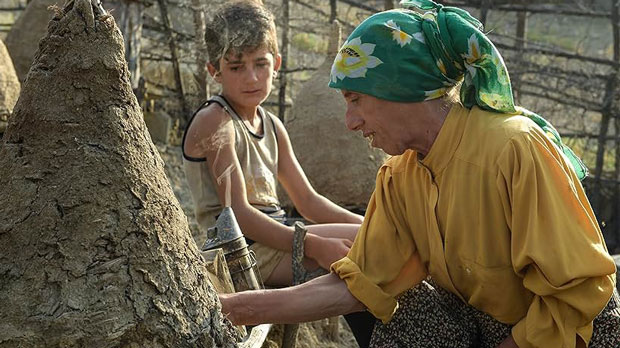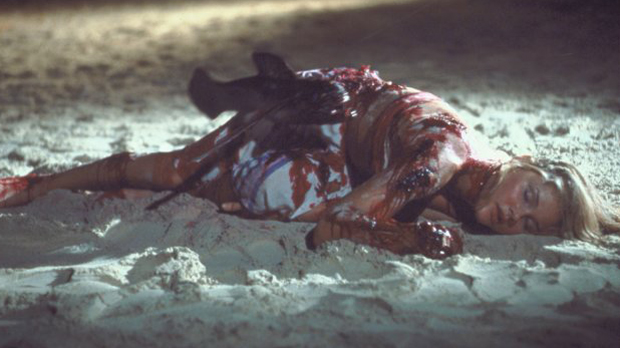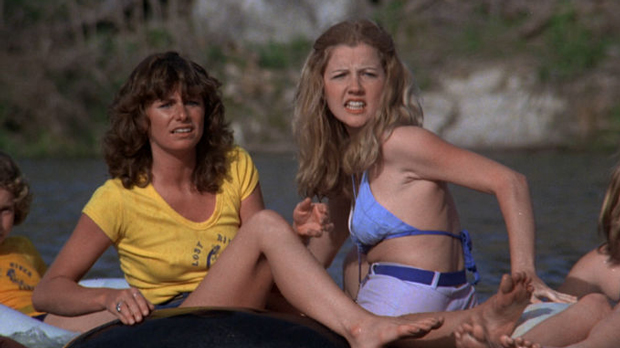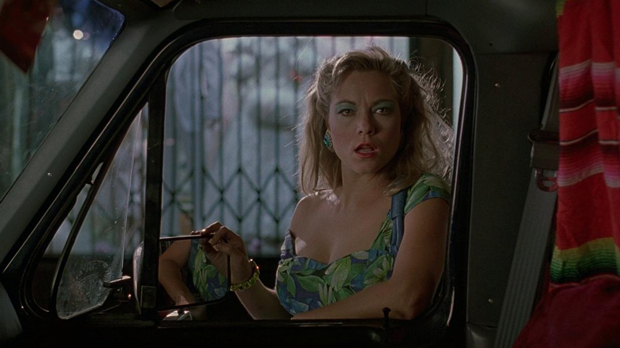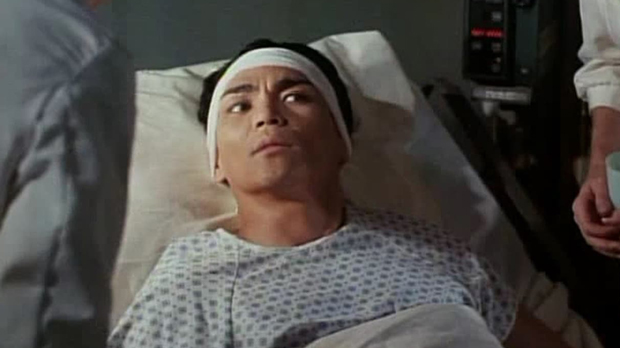 Honeyland (2019) Neon/Documentary-Drama RT: 87 minutes No MPAA rating (language, disturbing images, thematic elements) Director: Tamara Kotevska and Ljubomir Stefanov Music: Foltin Cinematography: Fejmi Daut and Samir Ljuma Release date: August 16, 2019 (Philadelphia, PA) Cast: Hatidze Muratova, Nazife Muratova, Hussein Sam, Ljutvie Sam. Spoken in Turkish w/English subtitles
Honeyland (2019) Neon/Documentary-Drama RT: 87 minutes No MPAA rating (language, disturbing images, thematic elements) Director: Tamara Kotevska and Ljubomir Stefanov Music: Foltin Cinematography: Fejmi Daut and Samir Ljuma Release date: August 16, 2019 (Philadelphia, PA) Cast: Hatidze Muratova, Nazife Muratova, Hussein Sam, Ljutvie Sam. Spoken in Turkish w/English subtitles
Rating: **
I’d be lying if I said I’m not disappointed in myself for not liking Honeyland, a docudrama about a female beekeeper living in near-isolation in the remote mountains of Macedonia. I’d also be lying if I didn’t say I found the scenery strikingly beautiful. It is. I had hopes for Honeyland. I wanted to be wowed by it. I wanted to sit there in my seat and observe life in a place I never knew existed while taking in the breathtaking scenery. I wanted to relax. That’s exactly what I was doing up to a point. Sadly, Honeyland lost me when the woman’s new neighbors moved in. It was all downhill after that. It’s funny how a single aspect of a film can ruin the entire experience, isn’t it?
The movie, directed by Tamara Kotevska and Ljubomir Stefanov (their feature film debut), opens with a shot of Hatidze making her way to a cliffside spot where she collects honeycombs from a beehive concealed within a pile of boulders. After loading up her basket with comb and bees, she heads back home where she delivers the bees to another hive located on her property. Hatidze does it all on her own. She lives in a small house with her ailing, partially paralyzed mother. To make money, she sells her honey to merchants at the marketplace in Skopje. Since she has no car, she walks there and back. At 55, she’s never been married, has no children or living siblings. It’s just her and Mom who isn’t likely to be around much longer. That changes when a family of gypsies moves into the adjacent property.
I’ll come right out and say it; I couldn’t stand that family. From the moment they pulled up in their old weathered RV, they got on my damn nerves. Their children are loud, rude and unruly. The father is a creep. They have a lot of livestock; that’s how they get by financially. At first, Hatidze tries to get along with them. She likes that the children are curious about what she does. Then the father decides he wants to go into the honey business too. He doesn’t listen to any of her advice; in particular, the rules about taking only half of the harvest and leaving the other for the bees so they don’t attack hers. As a result, the delicate ecosystem she spent years building up is destroyed. And after this horrible family ruins her life and livelihood, they pick up and leave. By the time Honeyland was over, I was thoroughly bummed.
There are times when Honeyland was a meditation on the balance between humans and nature. In its quieter moments, it’s quite good. The cinematography and use of natural light are strong points. Unfortunately, it’s all undone by those gypsies, their dirty ways and their foul-mouthed kids. As if that’s not unpleasant enough, the images of dead livestock (including calves) are simply ugly. I realize that not everything in life is nice and pretty but I was NOT prepared to see what I saw in Honeyland.
Hatidze Muratova makes for a sympathetic human subject. We get many close-ups of her weathered face as she goes about her daily life. One can immediately see her strength and years of hard work. In one scene, she ponders what could have been had her father not chased away all the boys interested in her in her younger years. Her interactions with her mother are laced with sadness as its clear she’s not long for this world. I couldn’t help but think of my wife who lost her dear mother in Romania earlier this year. As such, these scenes had personal meaning.
For all its good points and intentions, I couldn’t get past that gypsy family that ruined everything. What it all comes down to is that I wanted something different from Honeyland. My dislike for this film, I suppose, is personal. It didn’t connect with me like I hoped it would. That doesn’t mean it won’t connect with others. In fact, it’s highly likely that a majority of viewers will like it very much. If it sounds like your cup of tea, then go for it. I can only tell you what I thought of it. Remember that film, like all art, is subjective.
